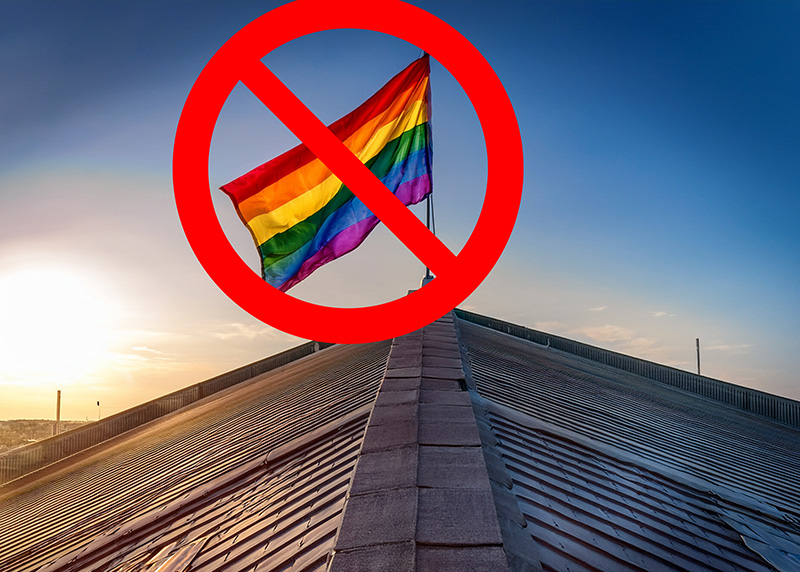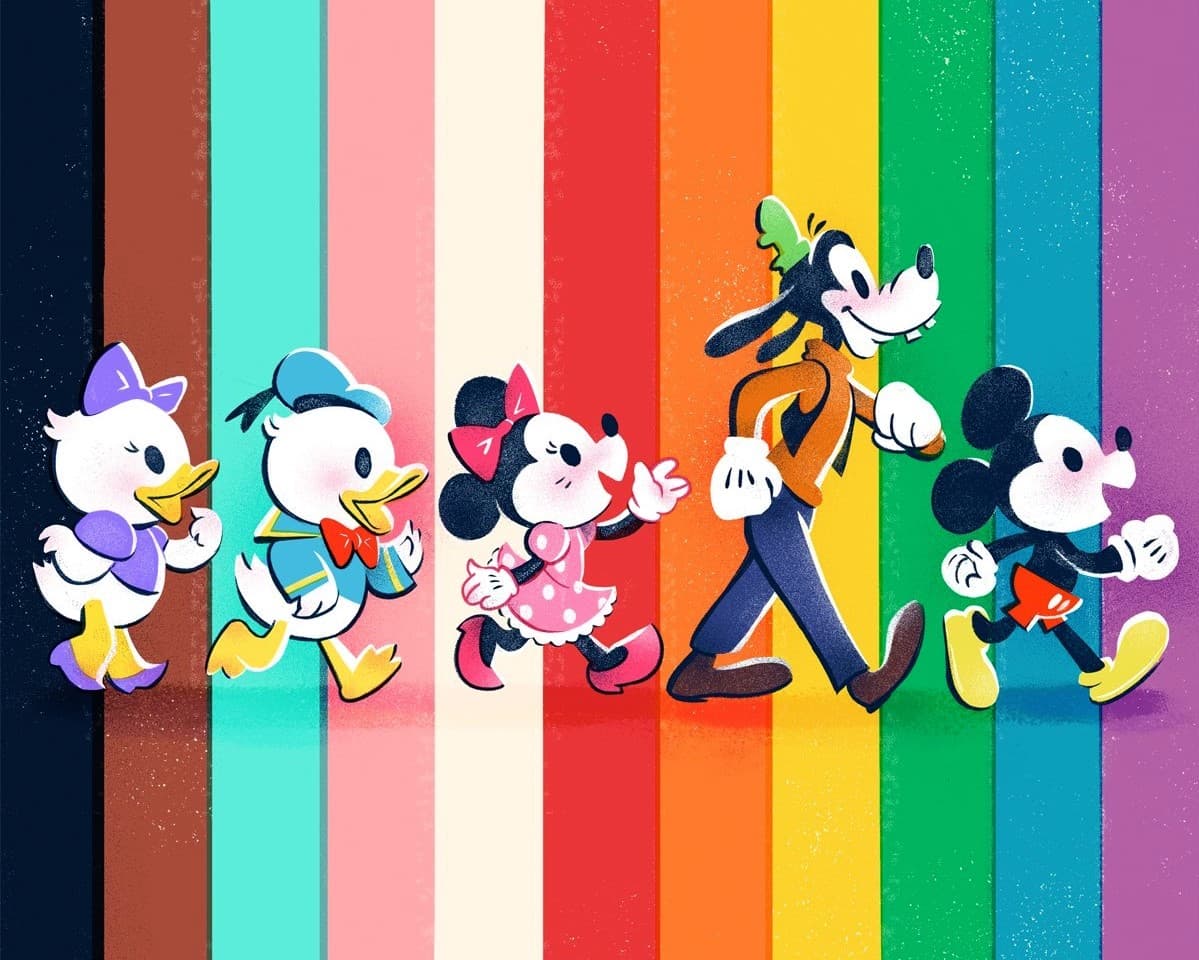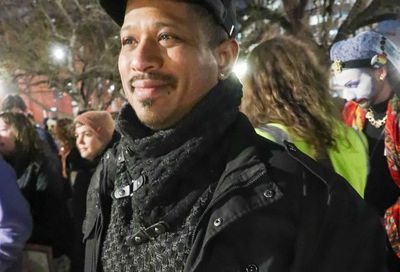HRC Explains Its LGBTQ State of Emergency Declaration
Amid flood of bills targeting LGBTQ rights, advocacy group issues a guidebook to help LGBTQ people navigate various state laws.

The Human Rights Campaign has officially declared a state of emergency for LGBTQ people in the United States for the first time in its more than four decades of existence.
The declaration comes in response to a flood of more than 500 bills in 41 states — 76 of which have become law — targeting LGBTQ rights, visibility, or freedom of expression, including bans on LGBTQ-themed books; prohibitions on LGBTQ-related lessons or topics in schools; religious exemptions that allow people to deny services to LGBTQ people; and bans on drag performances in public, among other measures.
More than 200 of those bills have specifically targeted transgender, nonbinary, or gender-nonconforming youth, often coming in the form of “bathroom bans,” bills restricting the use of gender-affirming pronouns in schools, bans on accessing treatments to help them transition, or restrictions prohibiting them from competing on sports teams that don’t match their assigned sex at birth.
In response to the laws, HRC issued not only a national warning but a downloadable guidebook for the LGBTQ community outlining where individuals or families with LGBTQ members may encounter difficulties accessing services or face barriers to self-expression.
The guidebook, which goes into detail about various state laws, and provides information about affirming resources, is intended to serve as a warning for people already living in states with laws that have been deemed hostile, and for those traveling to or through those states.
Justin Unga, HRC’s director of strategic initiatives, says that each LGBTQ individual or LGBTQ-headed family will prioritize the impact of different laws on their lives when determining whether to travel or relocate to or from a state with hostile laws.
As such, the guidebook lays out what restrictions are in place and what people’s opportunities for recourse are in each state.
“There may be families with a transgender child who are looking to move to a state that has prohibited gender-affirming care,” says Unga. “So that will resonate with them, and we want them to know what the guardrails are. For a person who may be transitioning or is transgender, some of these state laws, particularly in Florida, relate to public accommodations, meaning that the minute their flight land at Miami International Airport, they may have to think twice about which bathroom they’re using.”
Critics of HRC’s declaration have classified it as an “overreaction” as well as a ploy to wrangle additional money out of the organization’s donor base.
“The HRC’s latest PR stunt is so ignorantly detached from the incredible LGBT progress over the past decade that we’d be shocked if their donors even buy it,” Charles Moran, president of the Log Cabin Republicans, a right-leaning LGBTQ political group, said in a statement.
“Bipartisan legislation codifying gay marriage was signed into law just last year, public support for equal rights for LGBT Americans has never been higher, and LGBT Americans are increasingly visible and respected throughout our culture,” Moran added.
“Instead of recognizing these great facts, the Human Rights Campaign must perpetually fear-monger that the LGBT community is in grave danger in order to gin up donations and justify its existence. To that end, the HRC is destructively redefining support for the LGBT community around trans surgeries for minors, biological men competing in women’s sports, and sex and gender identity lessons in kindergarten.
“While these issues can be emotional and complex, they in no way pose an unprecedented ‘state of emergency’ to the LGBT community, which has persevered through far worse. We encourage the HRC team to read a history book.”
Unga rejected the notion that HRC is only concerned with its financial health.
“That’s a cynical characterization of what we’re doing,” he said. “Let’s take a look at the landscape and what is actually going on behind the substance of these bills that are all over the country. More than 41 states have introduced anti-LGBTQ bills. They are threatening to jail drag queens. They’re erasing gay and trans kids from schools. They are telling people what kind of medical care they are allowed to have for themselves and their families. They are using the levers of government to dictate what private American citizens are allowed to do or say or be.
“That means when an LGBTQ person enters the state of Florida, or Tennessee, or Texas, or another state that has passed these bills, they are entering a state where their rights may have changed. As soon as they land there, they’re entering a state where the government has gone out of their way to make life hard for them. It is critically important that we equip people with the information they need to navigate the impact of these bills.
“This is not fundraising. This is really standing with our community.”
Unga says it’s important for HRC and other LGBTQ advocates to push back against instances of state-sanctioned discrimination and anti-LGBTQ laws in as many ways as possible.
“In the immediate term, it’s important for organizations like HRC and every organization that stands against discrimination to be speaking up in every space,” he says. “In school, in church, in the government, at home. And to do so loudly.
“I’m going to borrow a term from one of my colleagues, and that is that we as this movement have to act like water. I’m not going to say what our precise tactics are, but we have to be agile. That means we have to do legislative advocacy. We have to work with our corporate partners to make sure they are the strongest allies, and that they are reinforcing, not retreating from their support for LGBTQ people. That means we have to work with faith communities, school boards, and the government. And then finally, we have to assert ourselves in electoral spaces.
“You’ve heard us say that when you come for LGBTQ people, we’ll come for you at the ballot box,” he concludes. “That will be our message going into 2024, louder than ever.”
Support Metro Weekly’s Journalism
These are challenging times for news organizations. And yet it’s crucial we stay active and provide vital resources and information to both our local readers and the world. So won’t you please take a moment and consider supporting Metro Weekly with a membership? For as little as $5 a month, you can help ensure Metro Weekly magazine and MetroWeekly.com remain free, viable resources as we provide the best, most diverse, culturally-resonant LGBTQ coverage in both the D.C. region and around the world. Memberships come with exclusive perks and discounts, your own personal digital delivery of each week’s magazine (and an archive), access to our Member's Lounge when it launches this fall, and exclusive members-only items like Metro Weekly Membership Mugs and Tote Bags! Check out all our membership levels here and please join us today!























You must be logged in to post a comment.